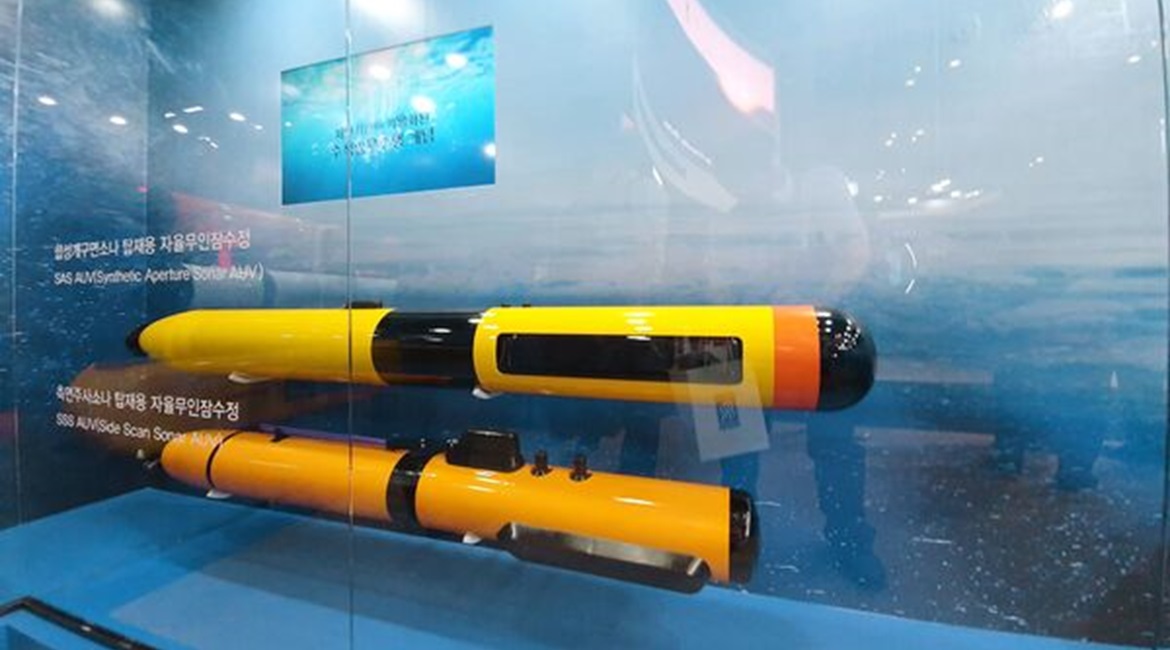
South Korean defence prime Hanwha Systems is set to lead a consortium comprising industry and academic research institutes to develop technologies applicable for autonomous underwater and unmanned surface vehicles (AUV and USV)-based wide-area search-and-rescue (SAR) operations.
The project, known locally as ‘Development of AUV and Operation Systems for Cluster Search', was launched by the Korea Institute of Marine Science and Technology Promotion (KIMST) on 11 June and is worth about KRW25 billion (USD22 million). KIMST aims to complete this project by 2025.

South Korea's Hanwha Systems is leading development of a networked unmanned search-and-rescue system. (Dae Young Kim)
Besides Hanwha Systems, partners include the Korea Research Institute of Ships and Ocean Engineering (KRISO), Korea Institute of Robotics and Technology Convergence (KIRO), Korea Advanced Institute of Science and Technology (KAIST), and the Korea Maritime and Ocean University (KMOU).
The effort is targeted at addressing domestic maritime accidents and other related contingencies which, according to the consortium, are not just increasing in frequency but also in scope, with accidents also distributed over large areas of sea.
SAR operations can not only be hampered by poor intelligence on an accident location, but also by unfavourable environmental conditions such as ocean currents, weather, and visibility. As a result, conventional SAR interventions using manned craft are inherently risky, and cannot always be dispatched to the scene immediately.
The consortium's aim is to develop an unmanned maritime system that can be rapidly deployed and offer accurate underwater navigation in challenging conditions.
Partners will contribute their respective capabilities to boost autonomous search operations by incorporating technologies such as networked communications, precise search, and real-time control and navigation to the AUV platform.
Looking to read the full article?
Gain unlimited access to Janes news and more...




